
It is always interesting to talk to Narayan Rane, former Maharashtra chief minister and the incumbent Union Minister of micro, small & medium enterprises (MSME). He has been at loggerheads with the Shiv Sena ever since he quit the party in 2005, over differences with Maharashtra Chief Minister Uddhav Thackeray. Rane rarely minces words while criticising the Sena.
Addressing a rally at Mahad in Raigad district on August 23—a stop on his Jan Ashirwad Yatra—Rane said that he would have slapped Uddhav for not remembering the year of India’s Independence. Shiv Sainiks across Maharashtra protested his remarks and four cases were filed against him. He was arrested in the case registered at Mahad, but was released on bail in a couple of hours. He took a short break from the Yatra, and resumed it again on August 27. In an exclusive interview with THE WEEK, Rane spoke about his arrest, his plans for the MSME ministry and the performance of the Central and the Maharashtra governments. Edited excerpts:
Q/What has been the impact of Covid-19 on the MSME sector?
A/I took charge of the ministry on July 7. The very next day I held a meeting of the officials to understand the ministry and to assess the impact of the pandemic. The officials briefed me about the budgetary provisions for the department. I told them that our effort should be focused on the growth of MSMEs so that there is employment generation and an increase in GDP.
The pandemic has hugely affected the MSME sector. We need to provide relief for the affected industries and I have asked the officials to get the necessary data and details. Once I get those, I will meet Finance Minister Nirmala Sitharaman and urge her to provide relief to the affected units so that they are able to stand on their own feet again.
This story is from the September 12, 2021 edition of THE WEEK.
Start your 7-day Magzter GOLD free trial to access thousands of curated premium stories, and 9,000+ magazines and newspapers.
Already a subscriber ? Sign In
This story is from the September 12, 2021 edition of THE WEEK.
Start your 7-day Magzter GOLD free trial to access thousands of curated premium stories, and 9,000+ magazines and newspapers.
Already a subscriber? Sign In
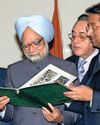
An iron hand in a velvet glove
Like a quintessential bureaucrat, Manmohan Singh protected his functional turf long after he ceased to be a civil servant
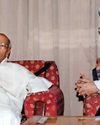
Quietly brilliant
Manmohan Singh implemented his own reform agenda, not World Bank-IMF diktats

Intentional prime minister
Manmohan Singh’s welfare policies as prime minister had a bigger impact on India’s economy than his dismantling of the licence raj as finance minister
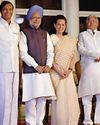
How Singh became king
Manmohan Singh’s success lay in his ability to engage with diverse opinions and steer a coalition government—a task requiring considerable political acumen
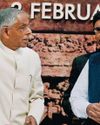
There would have been no India-US nuclear deal without Manmohan Singh
I had known Manmohan Singh briefly when he was finance minister and I was the director of the Intelligence Bureau but had no occasion to understand the makings of his mind or vision.
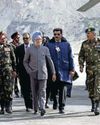
When Manmohan turned menacing
Manmohan Singh initiated a radical change in India's strategic doctrine against China by raising an attack corps
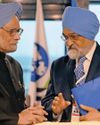
Manmohan, my role model, and a master in persuasion
MONTEK SINGH AHLUWALIA, FORMER DEPUTY CHAIRMAN, PLANNING COMMISSION

Unless they were economists, visitors filled him with panic
Selected excerpts from Strictly Personal: Manmohan & Gursharan by Daman Singh, Dr Manmohan Singh's daughter
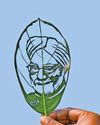
SILENT, SELFLESS AND STRONG
Manmohan Singh's legacy is not only one of economic and diplomatic achievements, but also of a leadership style rooted in dignity, respect and unwavering dedication to the nation

Walking in pine forest can have the same effect as a prescription drug
INTERVIEW - KATHY WILLIS, professor of biodiversity, the University of Oxford, and author, Good Nature